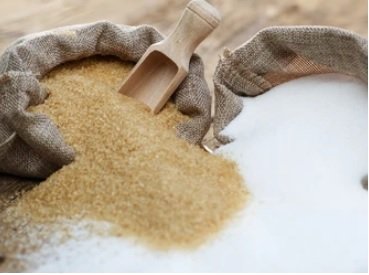Inside BENEO’s new pulse plant: pioneering sustainable protein from faba beans
Excess intake of sugar in any form will provide extra calories, so regardless of whatever is the kind of sugar, should be consumed in moderation
Generally, sugar is known to be a versatile ingredient in homely preparations, from morning tea to dessert at night. Likewise, festivities and celebrations are relished with the consumption of sweets, whether it is hot served Gulab Jamun or cold Rasgulla. Agree?
Even after having a complete main course meal, the meal seems to be incomplete. Why so? What do we crave? Yes, of course for the desserts, whether it would be sweets for adults and chocolates or ice creams for children to satisfy their sweet tooth.
Hereby, we are discussing sugar colour which is an obvious demarcating feature for it, brown referring to brown sugar and white to white sugar. Commonly, we use white sugar in daily food incorporations, often regarded as table sugar differs from the so-called healthy brown sugar.
What do you think makes these sugars different? Generally, the main difference arises in the processing of the two. Initially, the commercial processing of both sugars remains to be same by embarking with steps including cleaning, crystallizing, and drying the sugarcane juice extracted from sugar beets. But after the extraction of juice, a dark brown viscous syrup called molasses is removed, yielding white sugar crystals.
Conversely, on the other hand, brown sugar is white sugar in addition to the molasses which are added back to it. These molasses have characteristic features which contribute to the colour, flavour, and texture of brown sugar. Brown sugar is a little moist due to the incorporation of molasses, and that’s why these are often clumped together as compared to white sugar whose individual granules flow freely. Molasses provide a rich flavour to brown sugar; it is tempting for those who like to have molasses.
When it comes to nutritional value, a misconception is widely floating around revealing that brown sugar is healthier than white sugar. However, brown sugar is found to contain added nutrients due to the presence of molasses that is an appreciable source of vitamins and minerals like potassium, calcium, and magnesium. But, the proportion of these nutrients is minuscule that is considered to be insignificant to exert the benefit.
The real certainty is that both kinds of sugar are processed by the body equally and in the same way. Moreover, brown sugar is known to possess a slightly lower calorific value than white sugar. Overall, the nutritional profile of brown over white demonstrates that brown sugar is not that healthy as is thought to be and there is no much concrete benefit in using brown sugar. Moreover, it depends on one’s personal choice as discussed earlier, they may differ in flavour and texture profiles concerning the distinct food preparations like bakery and confectionery items.
Excess intake of sugar in any form will provide extra calories, so regardless of whatever is the kind of sugar, should be consumed in moderation. Furthermore, we should make sure that the consumption of sugar should be limited in our regular diets to avoid chronic diseases and serious health outbreaks.
Divya Aggarwal is a freelance writer

